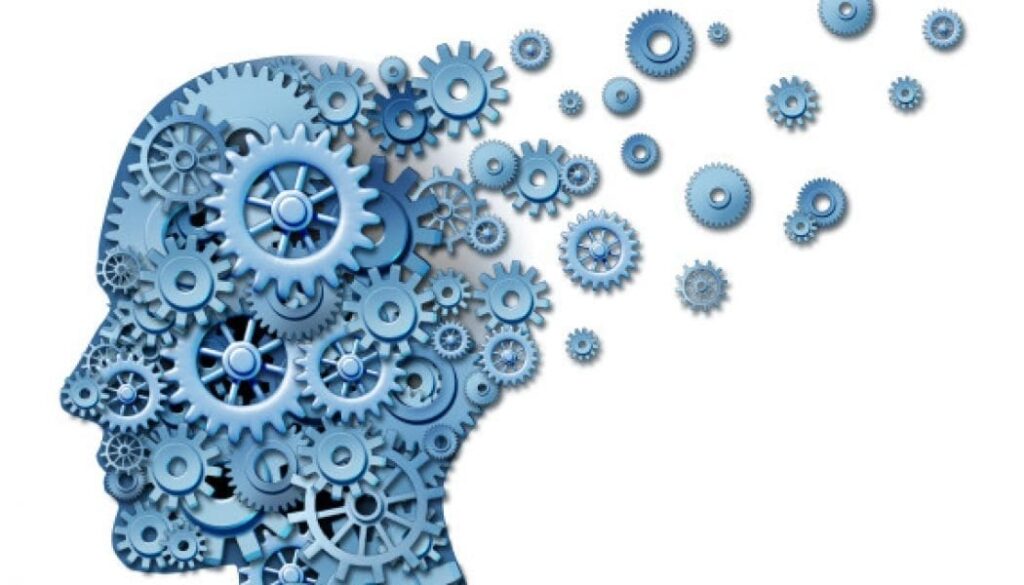
New therapeutic molecules developed at Toronto’s Centre for Addiction and Mental Health (CAMH) show promise in reversing the memory loss linked to depression and aging.
These molecules not only rapidly improve symptoms, but remarkably, also appear to renew the underlying brain impairments causing memory loss in preclinical models. These findings were presented today at the American Association for the Advancement of Science (AAAS) Annual Meeting in Washington DC.
“Currently there are no medications to treat cognitive symptoms such as memory loss that occur in depression, other mental illnesses and aging,” says Dr. Etienne Sibille, Deputy Director of the Campbell Family Mental Health Research Institute at CAMH and lead scientist on the study.
What’s unique and promising about these findings, in the face of many failures in drug development for mental illness, is that the compounds are highly targeted to activate the impaired brain receptors that are causing memory loss, he says.
It took a series of studies – the most recent appearing in January 2019 in Molecular Neuropsychiatry – to reach this stage. First, Dr. Sibille and his team identified the specific impairments to brain cell receptors in the GABA neurotransmitter system. Then they showed that these impairments likely caused mood and memory symptoms in depression and in aging.
The new small molecules were invented to bind to and activate this receptor target. The idea was that they would exert a therapeutic effect by “fixing” the impairment, resulting in an improvement in symptoms. The molecules are chemical tweaks of benzodiazepines, a class of anti-anxiety and sedative medications that also activate the GABA system, but are not highly targeted.
A single dose of these new molecules was administered in preclinical models of stress-induced memory loss. Thirty minutes later, memory performance returned to normal levels, an experiment that was reproduced more than 15 times. In another experiment involving preclinical models of aging, memory declines were rapidly reversed and performance increased to 80 per cent after administration, essentially reaching levels seen in youth or earlier stages of adulthood. This improvement lasted over two months with daily treatment.
“The aged cells regrew to appear the same as young brain cells, showing that our novel molecules can modify the brain in addition to improving symptoms,” says Dr. Sibille. He expects to start testing the molecules in clinical research in two years. “We’ve shown that our molecules enter the brain, are safe, activate the target cells and reverse the cognitive deficit of memory loss.”
If successful, the potential applications are broad. Not only is there a lack of treatment for cognitive deficits in mental illness, but the brain improvements suggest the molecules could help to prevent the memory loss at the beginning of Alzheimer’s disease, potentially delaying its onset.
Learn more: New molecules reverse memory loss linked to depression, aging
The Latest on: Memory loss and depression
[google_news title=”” keyword=”memory loss and depression” num_posts=”10″ blurb_length=”0″ show_thumb=”left”]
via Google News
The Latest on: Memory loss and depression
- Mom’s memory loss and tingling were dismissed by 14 doctors. It was neurologic Lyme diseaseon May 3, 2024 at 6:54 am
She'd been experiencing brain fog, dizzy spells, sleep troubles, facial palsy and “numbness and tingling in my arms, legs, hands and feet,” she recalls. She visited 15 doctors to try to understand why ...
- Discover Expert-Approved Hacks To Combat Memory Declineon April 30, 2024 at 9:13 am
Once serious memory loss takes hold, treatment options tend to be limited and uncertain. Here are some hacks that may help with memory loss.
- Long-term stress may lead to memory loss, neurologists warnon April 22, 2024 at 7:01 pm
Neurologists have warned that prolonged exposure to stress can heighten the chances of experiencing anxiety and depression, which in turn raises the risk of memory loss.They explained that during ...
- Recognizing the signs: When a loved one needs memory supporton April 22, 2024 at 4:04 am
Struggling to perform once routine tasks can be a warning sign that a loved one is experiencing memory loss. The Mayo Clinic advises that difficulty with tasks an older adult has performed for years, ...
- One ecstasy pill damages youon April 20, 2024 at 5:00 pm
Anxiety, memory loss and depression are among the side-effects. Levels of neurotransmitters, which carry messages between the brain and the rest of the body, dropped sharply after taking even a ...
- 'I've Spent 40 Years Studying the Brain, and This Is the #1 Habit I Recommend for Memory Retention'on March 16, 2024 at 11:25 am
Experiencing memory loss and becoming more forgetful is sometimes ... JAMA Open Network Stress, depression, and risk of dementia – a cohort study in the total population between 18 and 65 ...
- Hard of hearing over-70s report memory loss and mental health problems in lockdownon March 17, 2021 at 6:03 am
People with hearing difficulties experience heightened self-reported depression, loneliness, and memory problems during the COVID-19 ... DSN and NIHR Manchester BRC said: “Hearing loss, one of the ...
- Memory and Mental Healthon October 23, 2020 at 5:42 pm
Widespread mental health conditions such as depression, substance use disorders ... which involves potential severe memory loss and inability to form new memories. How is memory involved in ...
- Job Loss and Depressionon August 17, 2020 at 11:18 am
That’s one of the major percipients For depression is when we suffer loss. Damon Meharg ... or difficulty concentrating or problems with memory, certainly, it’s difficult than attending ...
- Causes of Depressionon March 19, 2018 at 3:31 pm
As common as depression is—about one ... such as difficulty with memory, sluggishness of thinking, inability to feel pleasure, loss of appetite and interest in sex, and heightened perception ...
via Bing News











